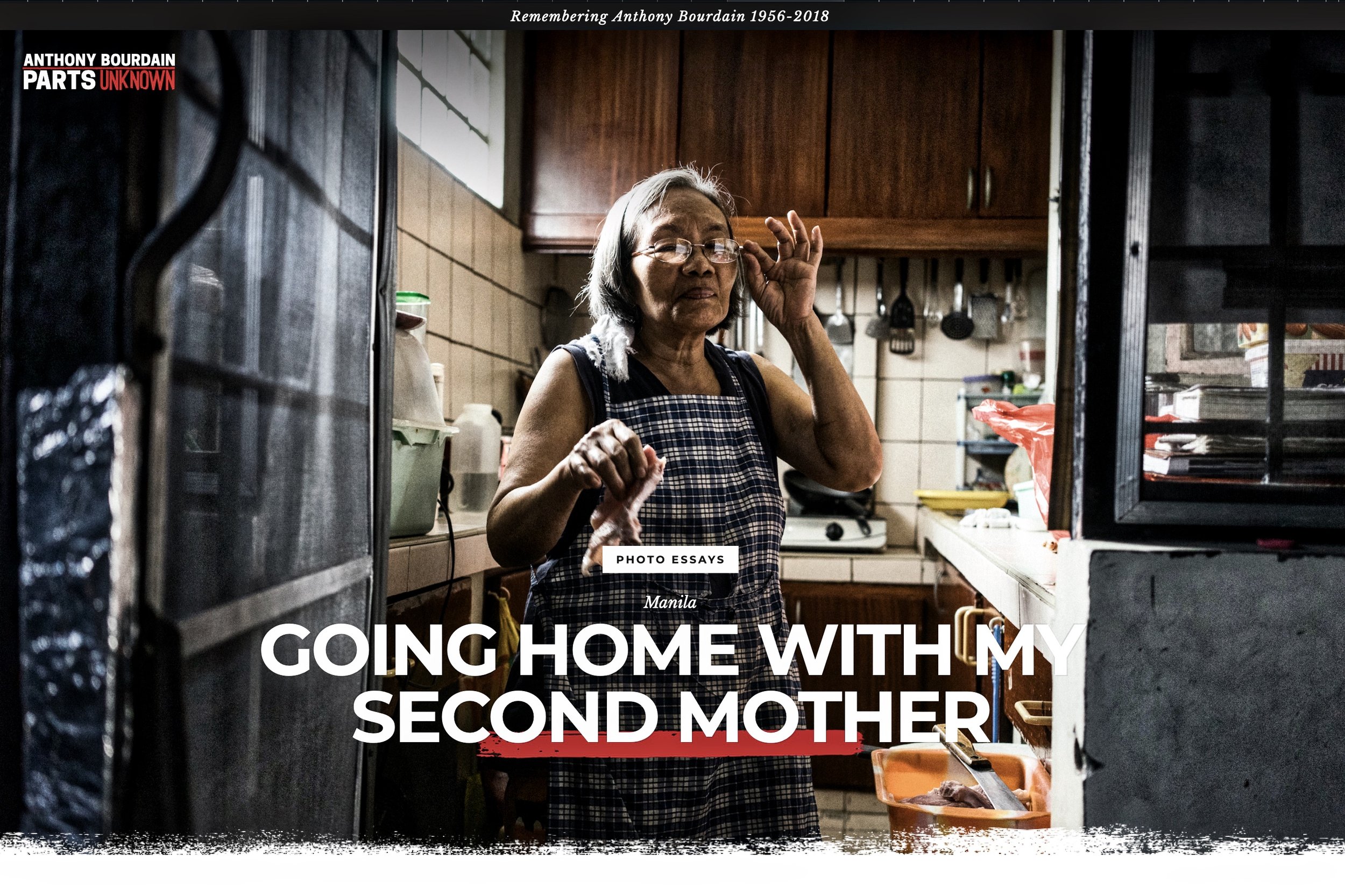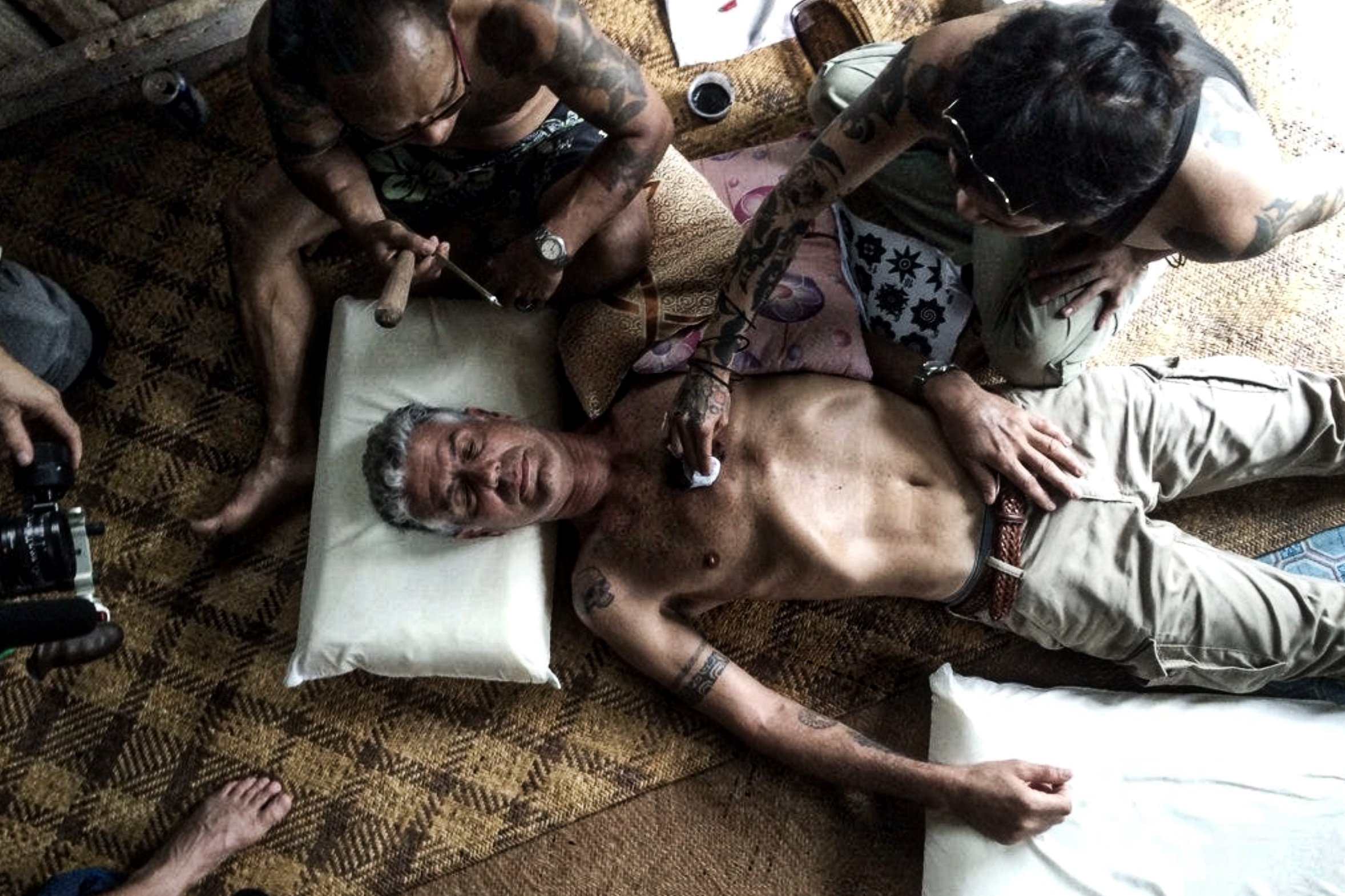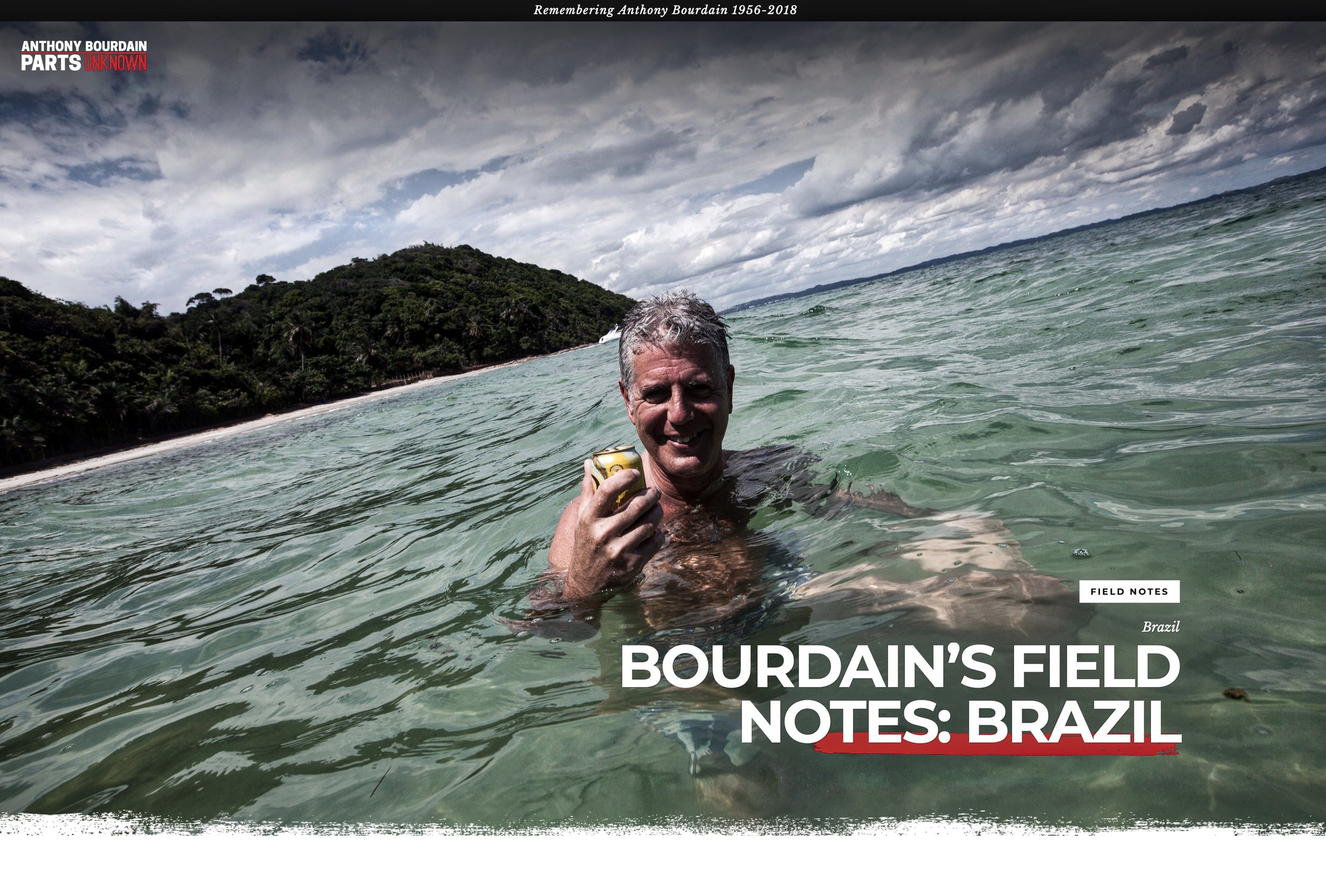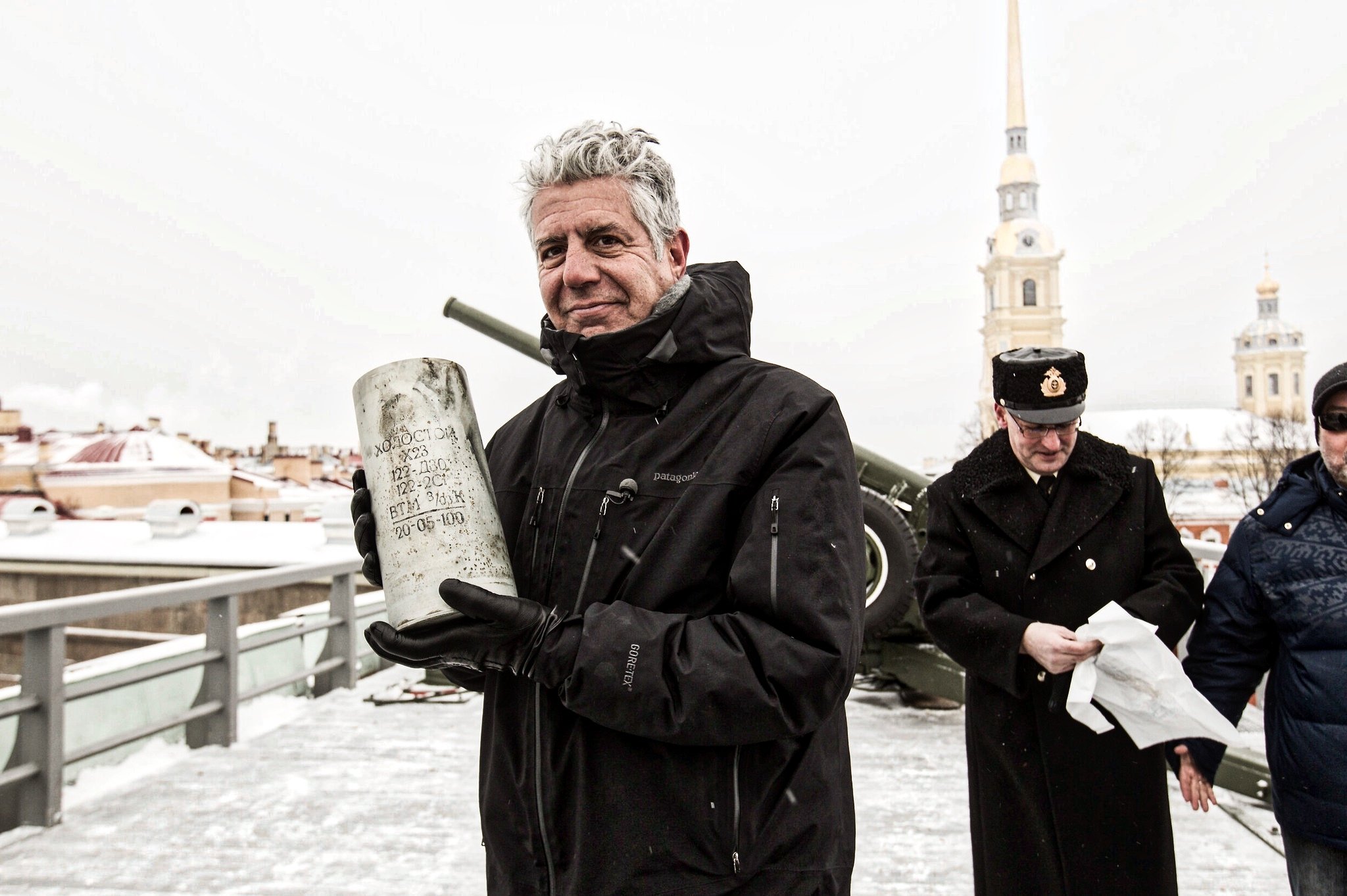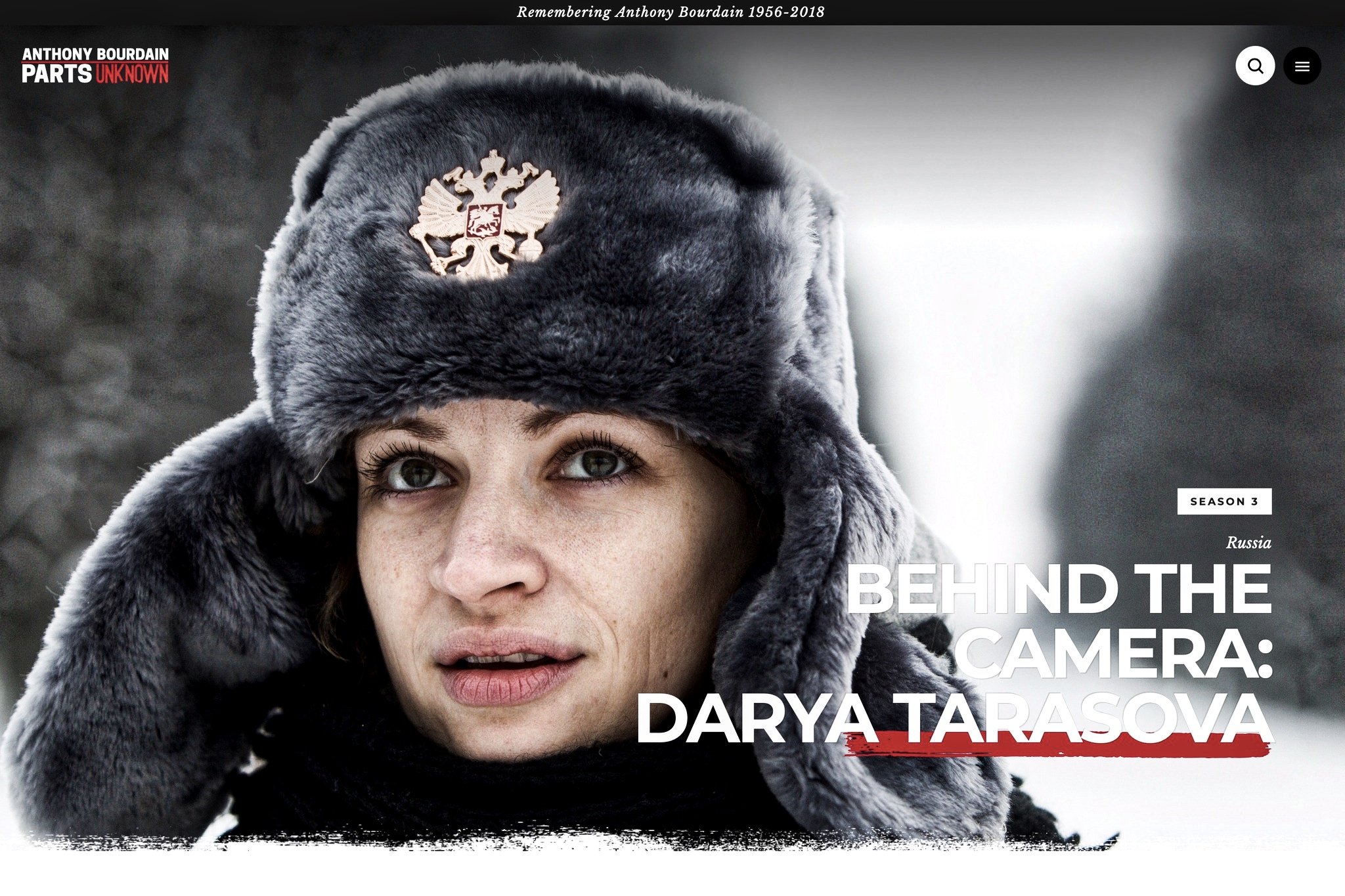You can’t go home again. Or can you? In this one, Anthony Bourdain examined the cultural impact of ‘OFW’s,’ “Overseas Filipino Workers,” and left at least one viewer in tears by the end.
If any longtime Bourdainophile had any doubts that Anthony Bourdain was no longer doing a strictly “food travel show” with Parts Unknown, those doubts were dispelled once and for all by the seventh-season opener, which kicked off on CNN with an eccentric, hard-to-read look at Manila, Philippines on April 24, 2016.
When Bourdain and his by-then close-knit team — Zach Zamboni, Todd Liebler, Tom Vitale and others at Zero Point Zero, a team that had been together thick and thin through countless excursions around the world for more than a decade — made the jump to CNN from the Travel Channel, the clue was in the name: The focus would be more on culture, politics, history, philosophy and, yes, the news, as opposed to the primarily food-focused lean of A Cook’s Tour, No Reservations and The Layover. It’s hard to look at A Cook’s Tour today and not see it for what it was — Anthony Bourdain Unplugged, the acoustic Bourdain, the brash, outspoken born-and-bred New Yorker, food enthusiast and frontline chef behind Kitchen Confidential, his tell-all “Hide the Kids, This Is Going to Get Ugly” look at how a busy, top-of-the-line restaurant kitchen really works. If A Cook’s Tour was Bourdain’s Piper at the Gates of Dawn, Parts Unknown was his Dark Side of the Moon: sophisticated, serious, meditative, studious, solemn, profound, handsomely mounted, mature, all grown up, and a global, worldwide smash. This was Bourdain in his pomp, no longer playing to a tiny audience of hardcore devotees on some obscure, out-of-the-way cable channel but rather playing to a global audience of everyone from hard-working, decent, everyday blue-collar folks to world leaders and global celebrities — basically, anyone and everyone with a working Internet connection. If the world was truly a global village, Bourdain was its town crier, librarian, historian and father confessor, a man of the people, for the people, and by the people.
And so, Manila.
Not everyone was a fan. Manila, with its curious shifts in tone — it’s Christmas in April! Here’s a biker cover band! Mom’s cooking is always the best, and don’t you forget it! Filipinos are some of the hardest-working people on the planet! The Philippines and Filipinos have endured an awful history of colonialism, invasion, exploitation, oppression, climate chaos, and some of the most rapacious, murderous and incompetent leaders who ever lived, and yet they're some of the nicest, neatest people you’ll ever meet!
It was never going to be for all tastes. Looking at viewers’ posts on Reddit today, a couple of points jump out.
1. Can it really have been nine years ago? It seems like only yesterday.
And 2, the world has changed so much in just nine short years.
Not just Bourdain’s world, but our world. Gaza. Lebanon. Ukraine. October 7th. The ongoing environmental destruction of the Amazon rainforest. The collapse of ecosystems around the world. Climate chaos. MAGA. The UN on the verge of total collapse. If there’s one comment — you couldn’t really call it a criticism — about Bourdain’s work in Parts Unknown today, it’s that much of it doesn’t seem too relevant to today’s world.
And yet … the more things change, the more much of Bourdain’s truthtelling seems prescient today. Eerily so.
In his essay for Medium at the time — see the link below — Bourdain explains that production of the Manila episode was hampered by an oncoming, full-blown typhoon, which restricted their movements around one of the largest, most populous and poverty-stricken cities on the planet.
And so, rather than visit every culinary nook and cranny in a city renowned for its wide variety of food experiences — familiar and unfamiliar eateries like Van Gogh is Bipolar in Quezon City, Neil’s Kitchen in Manila’s Westgate Center, Sebastian’s Ice Cream (“the Premiere Artisinal Ice Cream in Manila!”), and so on — Bourdain and his creative colleagues chose to focus on families cooking at home, biker cover bands, balikbayan boxes (corrugated boxes containing Christmas packages sent home by overseas Filipinos), the Filipino diaspora and the undeniable cultural, economic and social influence of “OFWs,” overseas Filipino workers who have scattered around the world, doing the menial jobs no one else will do and sending the money back home.
Manila was special, as one Reddit reader commented, because, for all the talk about despots like Ferdinand and Imelda Marcos, the tribulations endured under Japanese occupation during World War II, and the flattening of Manila by US carpet bombing during that same war, “he always throws us a bone with a food-centric show here or there anyways.”
And another:
“The show isn’t necessarily about food tourism like No Reservations was … Bourdain wanted to tell his personal story along with one of his directors, who was raised by the Filipina nanny in the episode. That Filipinos give and care for strangers’ kids, even when they had to sacrifice decades of getting to know their own children. He wanted to show the love that all those balikbayan boxes represented. That even our fast food is literally ‘Jolly Bee, and we export it around the world. He wanted to show the joy and happiness that people exude in the face of adversity, at home and abroad. I think he did a wonderful job. My mom was in tears at the end of the episode.”
Think about that.
When was the last time you watched an hour of TV that left anyone in tears at the end? Let alone a so-called ‘food tourism’ show.
That’s what CNN inherited when they somehow convinced Bourdain to leave the Travel Channel for the bigger world and a global audience, and it’s what we inherited when Bourdain emerged to become the cultural lightning rod and philosophical guidepost he still is today.
Supplementary reading:
https://medium.com/parts-unknown/unfinished-business-8b9021ed432d
https://explorepartsunknown.com/manila/domestic-worker/
https://www.newyorker.com/magazine/2016/04/11/the-sacrifices-of-an-immigrant-caregiver


